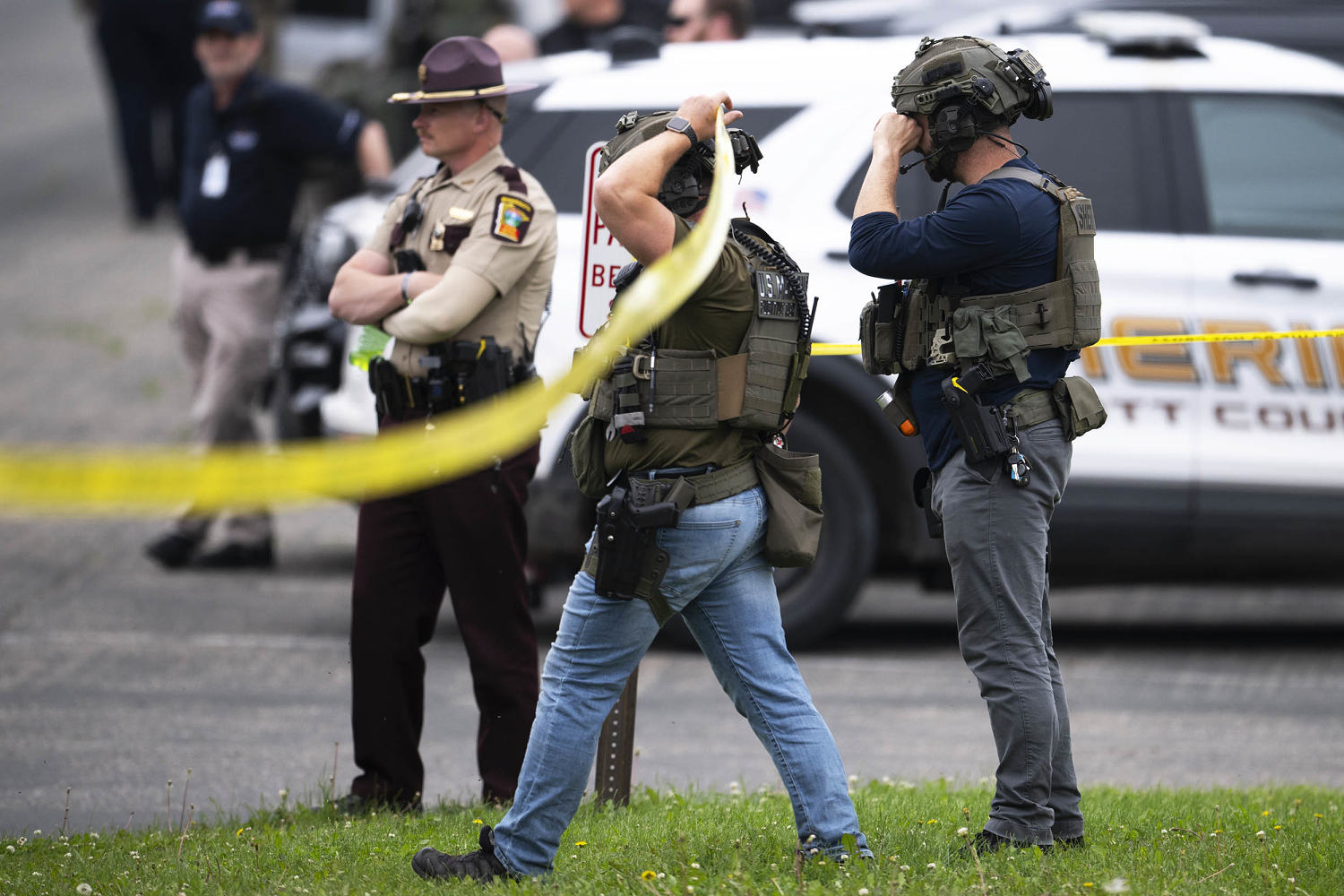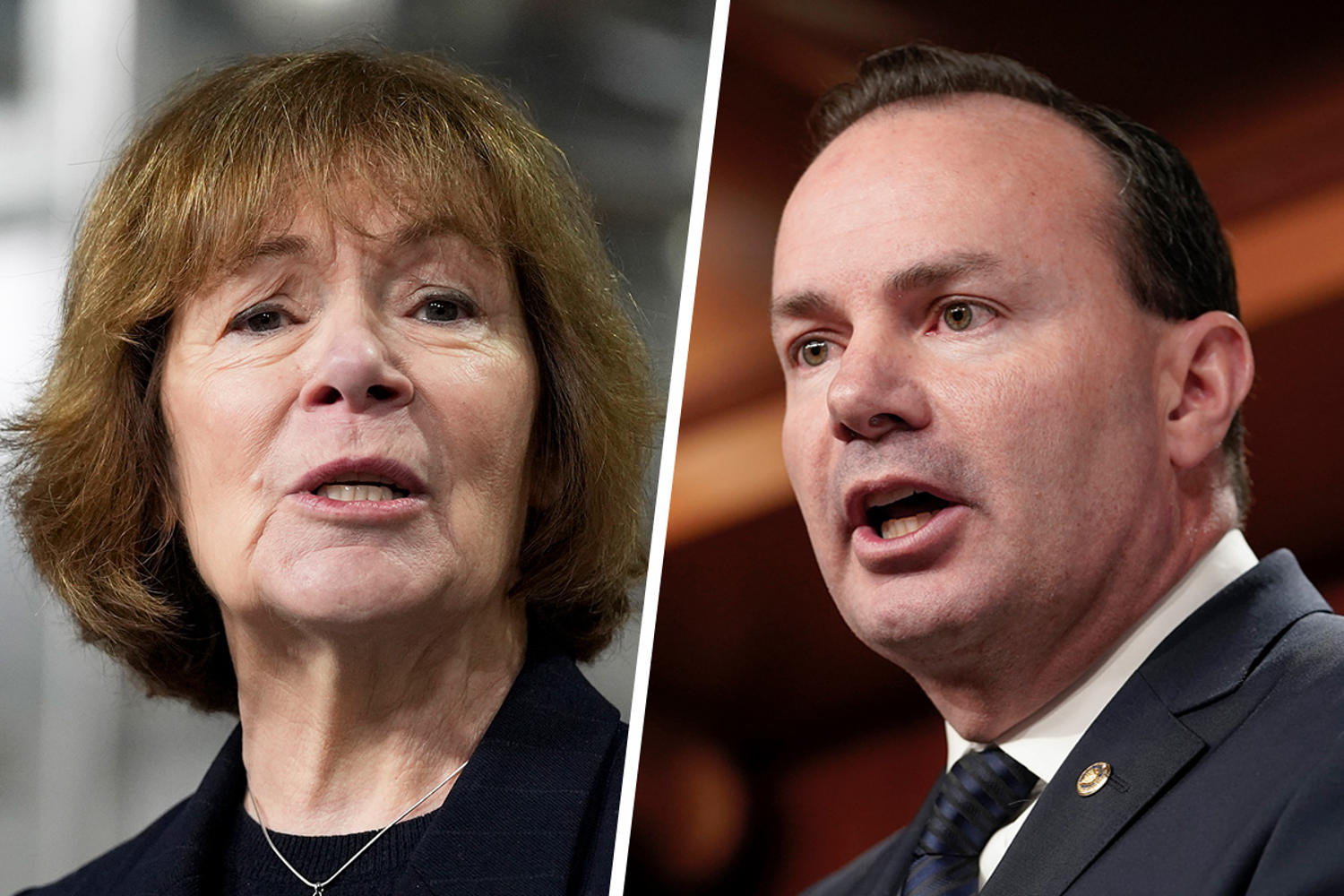Minnesota shootings reignite security concerns for members of Congress


WASHINGTON — The targeted shootings of two Minnesota state lawmakers has renewed an urgent debate on Capitol Hill as members of Congress raise alarm bells about their safety amid escalating political rhetoric and violent threats.
Law enforcement officials have begun holding a series of security briefings with groups of congressional lawmakers that will continue into Tuesday. Lawmakers have been told that they can spend money from their office budgets on home security systems and campaign cash on private security. Only a handful of congressional leaders get 24-hour protection from Capitol Police security details, though members can request extra protection, which is assigned based on whether Capitol Police determine there is an active threat.
But so far, those assurances have done little to calm nervous lawmakers, who have been harboring such concerns amid a string of violent attacks on American politicians over the past 15 years — a period that has included assassination attempts on a presidential candidate and members of Congress and a riot at the U.S. Capitol.
“It’s scary as sh–,” a senior House lawmaker said, describing how members of Congress feel after the Minnesota shootings. “We have had new safety and security procedures in place since Jan. 6, 2021. They include coordinating my district travel with local law enforcement. We will review those in light of the assassination in Minnesota.”
Authorities said Monday that the suspect, Vance Boelter, visited the homes of four elected officials early Saturday impersonating a police officer. Authorities say he shot and killed state Rep. Melissa Hortman and her husband, shortly after he seriously wounded state Sen. John Hoffman and his wife in a separate shooting at their home. He was arrested Sunday night.
A lengthy list of names of Democratic officials found in Boelter’s vehicle included those of several members of Congress, such as Sens. Tina Smith of Minnesota and Tammy Baldwin of Wisconsin and Reps. Angie Craig of Minnesota, Debbie Dingell of Michigan and Greg Landsman of Ohio.
“Both with the president and his administration and with members of Congress … we need to bring the temperature down,” Baldwin told reporters in the Capitol on Monday night. “There’s no place for political violence ever. Words matter.”
Rep. Hillary Scholten, D-Mich., said Monday that she was canceling a town hall Monday evening after she learned her name was also on the suspect’s list.
“Open, honest dialogue with West Michigan is at the heart of my service–and I will not be deterred from standing up for this community,” Scholten said in a statement. “Out of an abundance of caution and to not divert additional law enforcement resources away from protecting the broader public at this time, this is the responsible choice.”
Lawmakers press congressional leaders about security
After the Minnesota shootings, House Democratic leaders pressed their Republican counterparts Monday to do more to protect members of Congress.
House Minority Leader Hakeem Jeffries, D-N.Y., and Rep. Joe Morelle, D.N.Y., the ranking member of the House Administration Committee, asked Speaker Mike Johnson, R-La., to boost House members’ official budgets “to support additional safety and security measures in every single office.”
Some members of Congress have complained that there isn’t enough money in the office budgets to go around and that spending it on security can take away from other critical needs. To raise the budget for offices, Congress would need to approve an increase in the annual legislative branch appropriations bill.
“While we differ in many areas related to policy and our vision for America’s future, Member safety must be an area of common ground,” Jeffries and Morelle wrote in a letter. “Representatives from both sides of the aisle have endured assassination attempts that changed their lives and careers forever. Too many other patriotic public servants have left Congress because they no longer felt safe carrying out their duty as elected officials.”
In response to the attempt to assassinate U.S. District Judge Esther Salas of New Jersey in 2020, Congress passed a bill in 2022 to protect judges’ personally identifiable information and allow them to redact personal information in certain cases online.
In the wake of the Minnesota shootings, lawmakers have renewed discussions about passing a bill that would give themselves the same protections, according to a source with knowledge of the talks.
“I have long advocated for data privacy for everyone, including the residences of lawmakers, and I have encountered resistance in the past,” Sen. Amy Klobuchar, D-Minn., said in a statement. “Maybe these horrific murders will change the sentiment within Congress.”
On Saturday, House Republicans held an hourlong virtual call with House Sergeant at Arms William McFarland and Capitol Police leaders to discuss security concerns.
The call got tense, according to two members who were on it. Ten to 15 lawmakers spoke up, expressing concerns about their safety, particularly when they go home to their districts.
A Republican lawmaker told NBC News the call was “terrible,” adding that leaders have detail protection but that “nothing has changed” for other members, despite concerns about security before the Minnesota shootings.
Another source said the call, which happened to take place on the eighth anniversary of the shooting at a congressional baseball practice in 2017, was almost entirely about lawmakers’ needing police protection at their homes and concerns that their personal information is so readily available.
McFarland walked through some of the security options that are allowed for members. And leadership assured members that further avenues will be explored to see whether more can be done to protect lawmakers at home.
House Democrats are expected to hold a similar virtual briefing on security Tuesday. Senators will have an in-person briefing Tuesday, as well.
“I’ve been worried about lawmaker security for quite a while. People are just getting more and more brazen all the time,” said Sen. Kevin Cramer, R-N.D., who said his first cousin lives “two doors down” from the shooting in Champlin, Minnesota. “It’s too close to home. It’s so sad.”
“Everybody in my family, you end up putting your head on a swivel, and you hate to live that way,” he added.
Elected officials face growing threats
Threats to lawmakers have been steadily rising in recent years. Last year, the Capitol Police Threat Assessment Section investigated 9,474 concerning statements and direct threats against the members of Congress, their families or their staff members, an 18% increase from the previous year. The only year when more threats were recorded was 2021, in the wake of the Jan. 6 attack on the Capitol, when police investigated 9,625 threats.
On Monday, a 25-year-old Georgia man was arraigned on federal charges of making violent threats against Sens. Ted Cruz, R-Texas, and Deb Fischer, R-Neb., the Justice Department said.
But providing around-the-clock protection for all 535 members of Congress would be financially and logistically impractical. And Capitol Police have struggled to recruit and retain officers, even before the Jan. 6 attack, though in recent years the department has launched an aggressive recruitment effort.
Instead, officials have pointed to security resources already available to lawmakers. After the Jan. 6 riot, the House sergeant at arms created a program allowing each member to use up to $10,000 to install and maintain security systems at their homes.
And given threats on the campaign trail, the Federal Election Commission recently began allowing House and Senate candidates to spend campaign funds on security, including private security guards, cybersecurity and home security systems.
During the 2024 election cycle, House and Senate candidates spent $8.5 million on security-related expenses, according to an NBC News review of FEC statements. That’s an increase from the more than $7.5 million congressional campaigns spent in the 2022 cycle. Former Sen. Kyrsten Sinema, I-Ariz., led all senators, spending more than $1.2 million on such security expenses, while Rep. Alexandria Ocasio-Cortez, D-N.Y., led House members by spending $432,241.
There have been several high-profile examples of political leaders who have been targeted for attack in recent years.
In January 2011, Rep. Gabby Giffords, D-Ariz., was shot in the head while she was meeting with constituents at a Tucson grocery store. Giffords survived, but six of the 18 other people wounded in the shooting died.
In June 2017, a gunman opened fire on Republicans as they practiced in Alexandria, Virginia, for the annual congressional baseball charity game. Four people were shot, including Rep. Steve Scalise, R-La., then the House majority whip, who nearly died.
Members of the House and the Senate, along with Vice President Mike Pence, were targeted by pro-Donald Trump rioters who stormed the Capitol on Jan. 6, 2021, in a bid to overturn the results of the 2020 election.
In October 2022, a man broke into the San Francisco home of Rep. Nancy Pelosi, D-Calif., then the House speaker, and attacked her husband with a hammer. The man was sentenced to 30 years in prison.
And last July, just months before the presidential election, Trump narrowly survived an assassination attempt at a Pennsylvania rally after a gunman fired multiple rounds and struck his ear. Trump survived another attempt on his life in September while he was golfing in Florida.
“It clearly looks like a political assassination, and there’s just no room for that in this country,” GOP Sen. Eric Schmitt, the former attorney general of Missouri, said of the Minnesota shooting. “I think it’s a moment for the country to take a step back and everybody to condemn it.”





